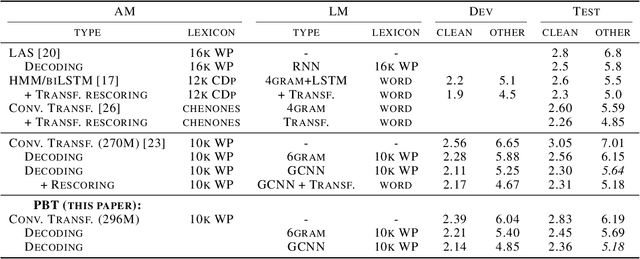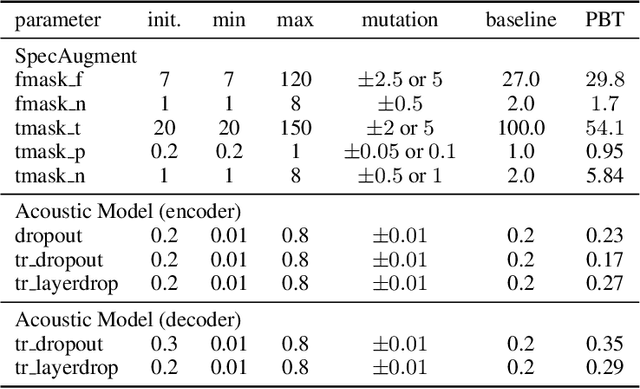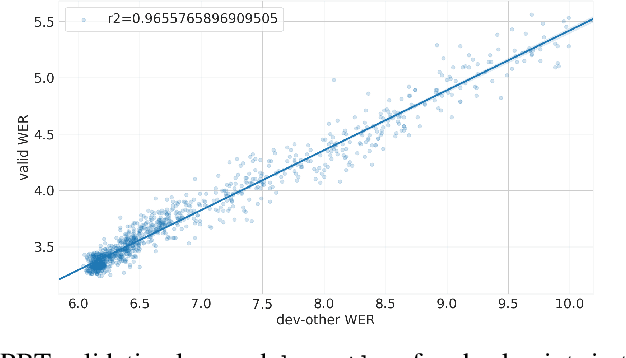Population Based Training for Data Augmentation and Regularization in Speech Recognition
Paper and Code
Oct 08, 2020



Varying data augmentation policies and regularization over the course of optimization has led to performance improvements over using fixed values. We show that population based training is a useful tool to continuously search those hyperparameters, within a fixed budget. This greatly simplifies the experimental burden and computational cost of finding such optimal schedules. We experiment in speech recognition by optimizing SpecAugment this way, as well as dropout. It compares favorably to a baseline that does not change those hyperparameters over the course of training, with an 8% relative WER improvement. We obtain 5.18% word error rate on LibriSpeech's test-other.
* tech report from Dec. 2019
 Add to Chrome
Add to Chrome Add to Firefox
Add to Firefox Add to Edge
Add to Edge